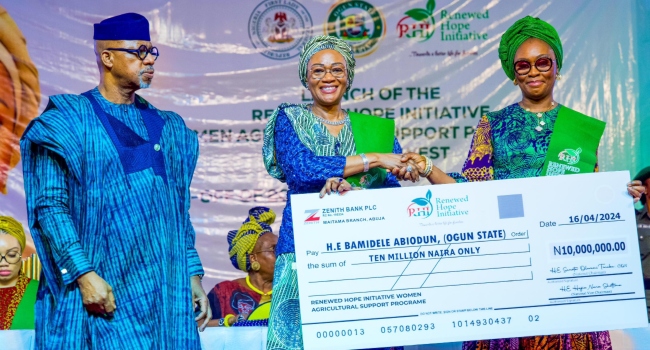BY DAVID ADUGE-ANI, ABUJA
The federal government has inaugurated Renewed Hope Health Connect (RHHC) management committee to bridge the gap in healthcare delivery across the country and enhance access to quality health care especially in rural and underserved communities.
Minister of State for Health and Social Welfare, Dr. Iziaq Adekunle Salako, who inaugurated the committee in Abuja on Tuesday, explained that the RHHCC is a medical outreach programme that would be conducted in selected 55-Senatorial districts across the country, targeting most vulnerable populations and charged with facilitating the implementation of the special project.
The minister frowned that access to quality health care remains a significant challenge in many parts of the country especially in rural and underserved communities, noting that this area often lacks sufficient health care infrastructure, personnel and, essential medical supplies; leading to poor health outcomes, high maternal and child mortality and, spread of preventable diseases.
In a statement by the deputy director, information and public relations in the ministry, Alaba Balogun, Salako stated that the federal government has approved the RHHC programme in the 2025 budget to demonstrate its commitment and avowed determination in addressing these gaps, noting that medical outreaches are proving to be effective in delivering health care services directly to the people who need them most.
Our reporter gathered that membership of the RHHC management committee comprises: the Minister of State for Health and Social Welfare, Dr. Iziaq Adekunle Salako, as it’s Chairman; Directors of relevant Departments, representative of the office of the Coordinating Minister, representative of the Permanent Secretary and, Coordinator National Eye Health Program and, Senior Technical Assistant and Technical Assistant to the minister, while Dr. Charles Nzelu, director, Special Duties Department will serve as Secretary.
The terms of reference for the RHHC management committee, according to the Minister, include but not limited to the following: “Working with consultants and firms to engage for this project, coordinating and overseeing the implementation of the medical health programs in Nigeria’s targeted 55 senatorial constituencies.
“Ensuring equitable distribution of medical services and resources, monitor and evaluate the impact of the outreach. Promoting partnership with relevant stakeholders including health agencies, NGOs, community leaders
Developing an implementation plan for the outreach including timeliness and resource allocation, identify priority healthcare needs specific for each constituency, as well as liaising with healthcare providers, medical personnel and logistical teams, to ensure procurement and distribution of medical supplies and equipments.”

